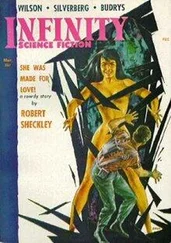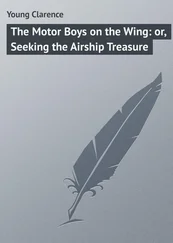Shuffling sounds came from inside. Whispers in Pashto. Gold could not make out the words. She listened hard for anything metallic—rifle safeties, fire mode selectors, or grenade pins—but she heard none of that. Finally a female voice said, “ Assalamu alaikum. But why do you defile our village with these machines?”
“Only to talk, my sister,” Gold said. “I believe we have a common enemy.”
“You are not my sister. And we all have enemies.”
“Then let us discuss them,” Gold said.
Inside the house, a long silence. Gold breathed just a little easier. If a burst of automatic weapons fire was going to come through that door, it would have happened by now. She thought she heard whispers within. A vast chasm of culture and religion stretched between her and the women inside; Gold wondered what common reference points she could call on if the conversation continued.
She thought of only one: The taproot of every faith, the core of every philosophy, was human suffering. Maybe the women here had seen so much of it, they’d want to try something different to stop it.
“My sister,” Gold said, “I am still here. If you wish to talk, I would like to meet you. If you wish me to go, I will leave you in peace.”
After several seconds, the door unbolted, swung open. A woman in a blue burka stood at the entrance. Gold could see only her eyes. They were black, surrounded by creased skin. In the room behind her stood two other women dressed the same way.
“Thank you,” Gold said. “Peace be upon you. May two of my colleagues enter? They bring a small gift.”
The woman at the door peered outside at the MRAPs.
“No men may enter.”
“They are two women,” Gold said.
The Afghan woman looked at Gold in apparent surprise. “They may come inside,” she said.
Gold motioned with her arm, and in a few seconds Ann and Lyndsey came from the back of the Cougar. Lyndsey carried the sugar. Suddenly Gold had second thoughts about the gift. Would it seem patronizing? Too late now.
When Gold and the Lionesses entered the home, Gold said, “We have sugar for your tea.”
“That is generous,” the woman at the door said. “Times are hard. We have not had that luxury in a while.” From her tone, she didn’t seem especially impressed, but neither did she seem insulted.
“May we be seated?” Gold asked.
“You may.”
Gold gestured to Ann and Lyndsey, and all three sat cross-legged on jute rugs spread across the stone floor. What little light entered the room came from glass mounted at an angle in an irregular-shaped window. Daylight showed at the top edge of the ill-fitting sash. In the ceiling, Gold saw rafters cut from birch trunks, bark still peeling, thatch of grass and brush stuffed between them. A fire burned in a corner hearth.
The woman who’d been doing the talking sat and removed her head covering. Her gray hair was tied tightly, and her lined face was dark and leathery, a record of a difficult life. The other two women kept their faces hidden.
“Why have you come to us?” the elderly woman said.
“Children have been taken for soldiers,” Gold said. “Refugees from the shaken earth have been killed merely for accepting help. I am told that even among the Talibs, some do not approve.”
“I know of these things, but they are the business of men.”
“Indeed,” Gold said. She paused, considered whether to press further. Well, she had come this far. “Perhaps it is the business of a Mullah Durrani. Do you know him?”
The woman looked down at the rug on which she sat. In the colors of its jute strands, Gold saw the pattern of a mosque, dome and minarets.
“We shall have tea,” she said, “with your gift of sugar.” The woman gave orders to the other two. They dipped water from a pail and placed a kettle over the fire.
When steam rose from the kettle, the women added green tea leaves. After the tea had brewed, they poured it into clay cups and added sugar.
“Hamdillah,” Gold said. Literally, Praise be to Allah , but often used as a thank-you.
The two women who gave out the cups never uttered a word. Daughters, perhaps. Only the older woman spoke, and she never offered her name. She sipped her tea silently. Finally she said, “I am one of Mullah Durrani’s wives. My husband has retired from jihad and all public matters.”
Despite the burning hearth, Gold shivered. She hadn’t expected to get this close to Taliban leadership. One of the daughters rose to add dry sticks to the fire. The flames sizzled into the twigs, flared yellow to orange.
Gold watched the fire for a moment, then asked, “Does your husband know of Black Crescent?”
“I am certain he does. He keeps informed in his retirement.”
“Do you believe he would speak with us?”
The woman stared straight at Gold. “Never,” she said. “He will not hold counsel with infidels.”
Two steps forward and one step back, Gold thought. If this never went further, she’d accomplish little.
“I would like to talk with my colleagues in English,” Gold said. “They do not understand your language well. We do not mean to be rude.”
“You may speak among yourselves,” the woman said.
Gold briefed Ann and Lyndsey on the conversation so far. Like Gold, they had expected to meet a distant cousin of Durrani’s at best. A lucky break to find a wife. But if she wouldn’t help, then so what?
“I have an idea,” Ann said. “Appeal to the maternal instinct.”
“Maybe so,” Gold said. That approach had worked when she talked to the women at the refugee camp attacked by Black Crescent. Perhaps it would work here, too.
“What mother wants her child taken from her?” Ann said.
Gold sipped her tea while she gathered her thoughts. The tea was not too sweet; the Afghan women apparently intended to make that bag last a while. Steam rose from the liquid, and it burned going down.
“My sister,” she said in Pashto, “I know your husband has waged jihad. I know your family has produced warriors. But do you not want something more than war for your children? At least until they are old enough to fight as men?”
The wind strengthened outside. A gust shifted some of the thatch overhead and made the birch poles creak. Gold wondered if this was a freak event or some seasonal wind. She’d heard of a dry northwesterly called the Bad-i-Sad-O-Bist-Roz , but she couldn’t recall if it came this time of year. Parson would know.
“We do not carry sons for nine months only to see them disappear,” the older woman said. “Jihad is blessed by God, but for fighters old enough to wear the beards of Muslim men.”
“Then will your husband speak with us?” Gold asked. “When the Talibs came to power, they punished pederasts. Your husband can still protect Afghan children, despite our differences.”
“How could he help you, if he so wished?”
“Perhaps he or his contacts know something of Black Crescent, where its leader hides.”
That was pushing it, Gold knew. But now she’d laid it out, exactly what she wanted. Either she would get it or not. If not, better to find out now.
“Call on me in two days,” the woman said. “I will have an answer by then.”
“That is all I can ask,” Gold said. She placed her right hand over her heart. “Hamdillah.”
“Assalamu alaikum.”
Gold rose to leave. The two Lionesses stood up with her. When she opened the door, the wind nearly tore it from her hands. The gust filled the room behind her. She looked back at Ann and Lyndsey and saw ashes swirl from the hearth. Banked embers glowed and crackled. Gold sensed she had set new forces into motion, on courses yet unclear.
* * *
Rashid lit a Marlboro. Parson started to tell him he knew better than to smoke that close to a downed aircraft. But the fuel tanks hadn’t ruptured, and Parson figured the poor guy needed a cigarette. Rashid pulled the filter from his lips and exhaled. The wind whipped the smoke away instantly. He hunkered beside his crew chief in the fighting position they’d built up with rocks in front of the helicopter. Both of them stared down into the draw and across the valley, where the dog kept looking. The Malinois lapped at its water dish, then looked up again.
Читать дальше












